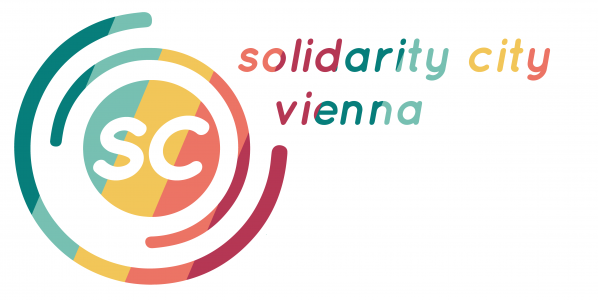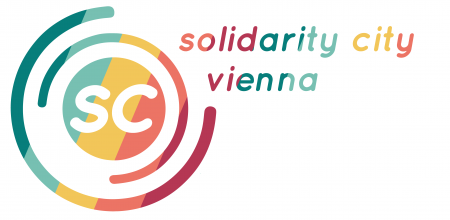Considered by many as a secular saint, Mrs. Ute Bock (Linz 1942 – Vienna 2018) began helping refugees, especially those who were not included in the classic asylum system or who could not receive institutional support, as early as the 1990s. At that time, refugees were sent to Mrs. Bock as her pragmatic approach was already popular in Vienna: “if someone needs help, then I will help him/her!” Her association the Ute Bock refugee project is celebrating its 20th anniversary this year. To this day, the goal of the association remains the same: to offer a low-threshold assistance to people who have no one else to help them. Maren Riebe, Press & Public Relations manager, guides us through the work of the association.
Over the years, the Ute Bock refugee project grew starting from a first aid service to a project with three major areas of activity Shelter, Education & Counselling. Based in Zohmanngasse 28 in one of Vienna’s most multicultural districts, Favoriten, the association’s activities expand beyond these three areas, to include emergency aid and the Bock for you volunteer award.
Housing as a basic need
The largest initiative of the association’s “Shelter” workstream consists of a housing project where the association provides a roof and ongoing support to approximately 300 people, with more than 70 rooms of the Ute Bock House as well as about 45 external apartments primarily used by families.
Maren clarifies the mission of the project: “In the housing project, we try to accommodate the people who need it most, such as refugees who would be on the street without any support.” In addition to people in the regular asylum procedure, who receive basic financial assistance (about € 350 for housing and food), the Ute Bock House very often hosts people who, for various reasons, no longer receive any financial help.
The time that people spend in the Ute Bock House varies greatly. “People rarely come to us directly after entering Austria and applying for asylum, but sometimes after years – after relocations from other federal states, after other shelters have been closed, etc.” tells Maren. “Some stay in the house for half a year, in order to get a residence permit. Others, however, have been living in the house for more than 10 years.”
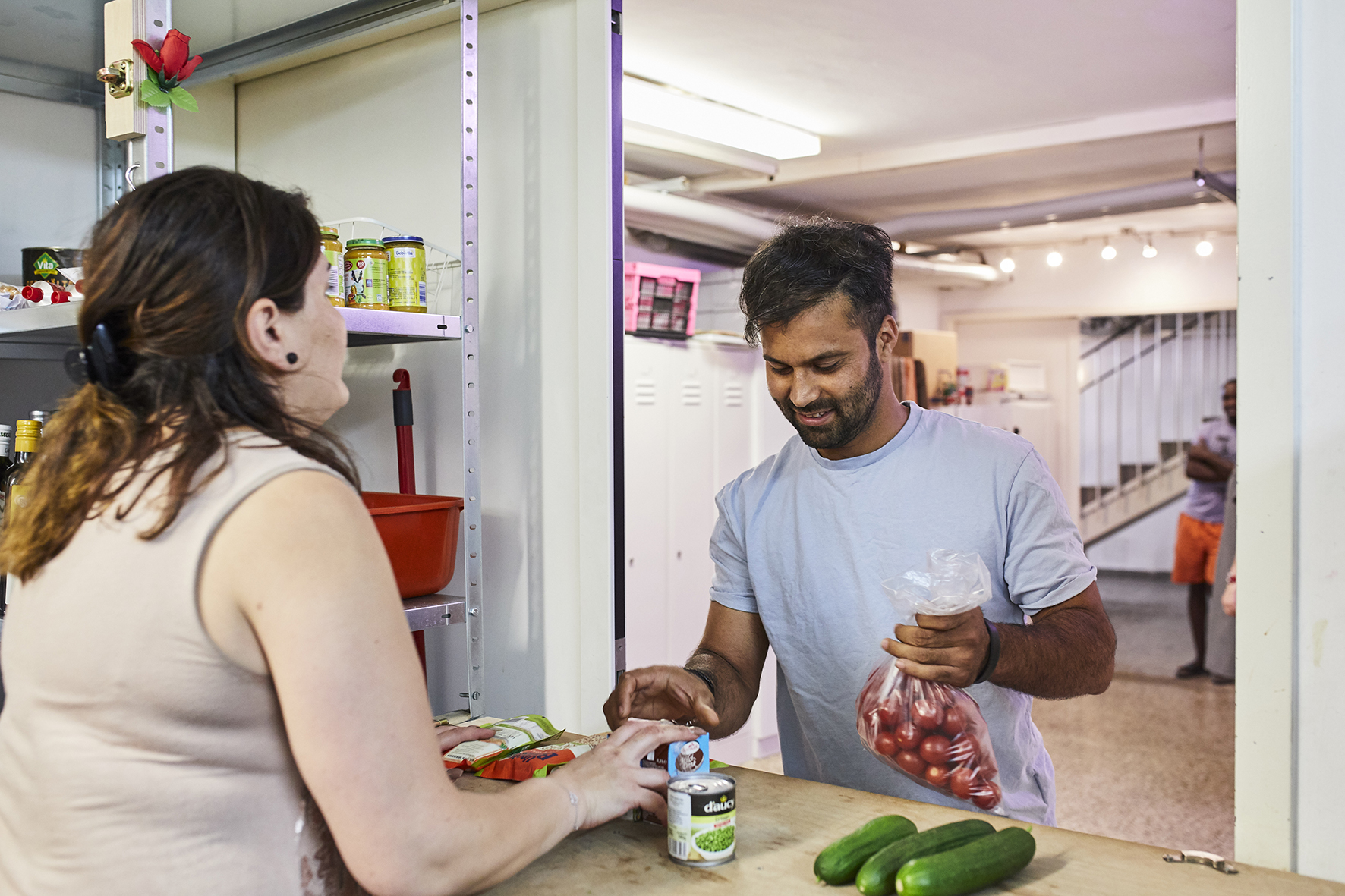
The right support for a new life
Besides offering housing, the Ute Bock Association accompanies people until they can stand on their own feet again. “When someone gets a residence permit, we have a transfer phase and a support program called ReStart,” explains Maren. “First of all, we make sure that they are financially secure, that they have a job with a regular contract, that they are doing an apprenticeship, etc.” The association helps them also in finding a place to live: people is supported in their search for housing and are offered donated furniture or helped with urgent new purchases as well as other large initial costs such as the deposit for the new apartment. “If someone has no money at all for years, how can they afford such an apartment? We simply don’t want them to then start their new life right away with debt after years of waiting under immense pressure.”
Once the asylum is received, refugees have to find a job: a challenging task after not being allowed to work for many years, and with unrecognised qualifications from their home countries. Moreover, finding affordable housing in Vienna represents another challenge for everyone with precarious incomes, regardless of their nationality. But in addition to this, Maren highlights the possible stigma of origin or of religion: “Even though it is legally forbidden to discriminate against people on these grounds, the reality is different.” In case the association notices that the search for housing for individual clients is hopeless, they have small transfer apartments where to host people for about a year even with a positive residence permit.
The Ute Bock Association stands by the side of people in need also during this period helping them with job applications, checking contracts and agreements.
Integration through education
Thanks to the support of many dedicated volunteers, the association offers free German and literacy courses as well as basic education courses at the Ute Bock educational centre. Here, asylum seekers have the opportunity to learn German at their own pace. The heart of the educational center – the “Büffelböcke” educational centre is offering a special daily learning support to children between 6 and 14 years with a refugee background, ensuring equal opportunities in the classroom.
In the centre, refugees can learn German up to the B2 level, in addition to maths, English and computer courses. “We see a great need for literacy courses in particular. There is often not enough time here. Adults learn differently than children; it is very difficult to learn to read and write in your mid-40s if you never attended school as a child. More support is needed here and we would like to expand this area,” tells Maren, when stressing the association’s current need for more volunteer teachers.
In addition to language learning, the courses also offer a structure in refugees’ lives. Due to the EU ban on working for asylum seekers, their daily lives can be monotonous. Another advantage of the courses is the opportunity for personal connections in the education centre, sometimes leading to friendships outside the Ute Bock House.
Providing life guidance
Ute Bock’s social counselling programme offers refugees support in all life situations, on three days per week. The counselling team consists of five social workers who help with applications, provide information and are always open to listen to concerns and to help. In addition, the social counselling service offers a mail service for homeless refugees without a regular residence.
Throughout its different programmes, the Ute Bock Association supports people in need with food and supply of necessities like clothes, shoes, dishes, school materials etc. Thanks to the dedication of social workers and volunteers in the three project areas (Shelter, Education, Counselling), the association is able to support almost 1,500 people each month.
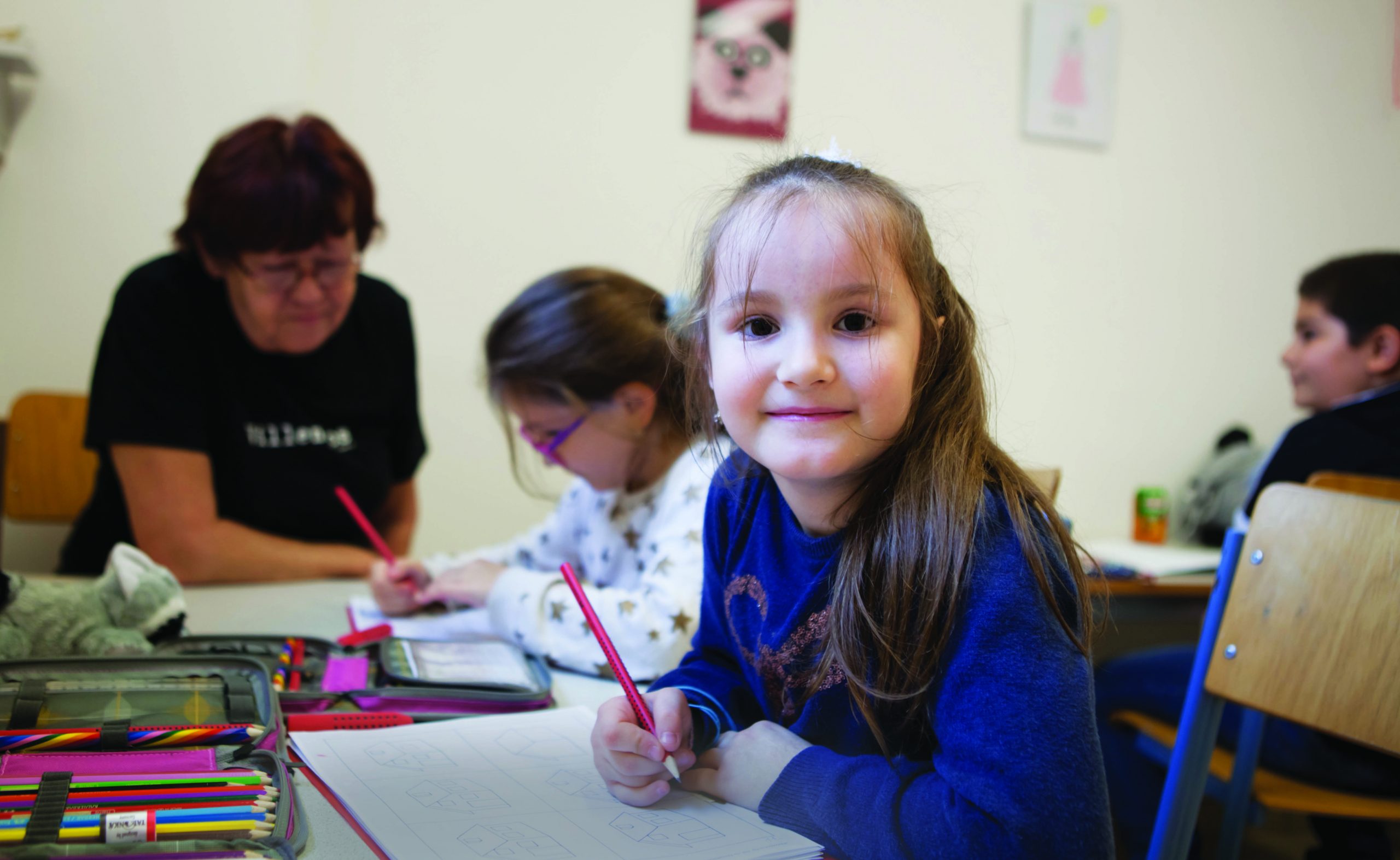
Unbureaucratic and quick support
“Low-threshold, unbureaucratic and pragmatic: this is how we want our emergency aid to be. We always try to find a solution,” explains Maren, making it clear that the Emergency aid for refugees provides refugees with what they need for a decent life.
She also underlines how much communication plays an important role in this mission. “Not everyone is comfortable asking for help. In their conversations, our counsellors try to find out what the private situation is, what is needed, etc. and, if necessary, proactively offer our help, such as providing school supplies for the children.”
There are clear structures for donating goods and food, in order to help as many people as possible. Coordinating everyone’s efforts is a big challenge, especially with the ongoing Covid-19 restrictions that are strictly implemented at Ute Bock House. “We would not be able to do this without our volunteers, which is why we had to stop our donation distribution during the lockdowns. Sorting the donations alone is a huge effort, and we also face challenges in terms of space.” The Ute Bock refugee project tries to communicate clearly what the association can use and when, to avoid being seen as a disposal site.
Bock For You: when volunteer work by refugees is recognised with an award
Bock for you was launched in 2019 on the occasion of the first anniversary of Ute Bock’s death. Bock for you is an award which aims to highlight that asylum seekers are actively involved in Austrian civil society, even though they themselves are often still in need of help. The topic of asylum is often associated with negative headlines in the public opinion. The association wants to counter this with positive stories, giving a special recognition to Austrians’ new fellow citizens.
All nominees receive an official nomination certificate in recognition of their achievements for civic engagement. The three winners also receive prize money of €500 each, donated by the board of the Ute Bock Association. The Bock for You event took place this year on the 9th March, and rewarded three role models who have worked tirelessly to help fellow refugees and made a huge impact on their lives.
Finance
The Ute Bock Refugee Project, and especially the education centre, relies on the help of many supporters, since they finance their various services primarily through donations. Donations for the Ute Bock Association are encouraged by Austria’s tax policy since they are tax deductible. Moreover, for certain areas or sub-projects, such as the social counselling and the housing project, Ute Bock’s Association receive funding from the Fonds Soziales Wien (Vienna Social Fund).
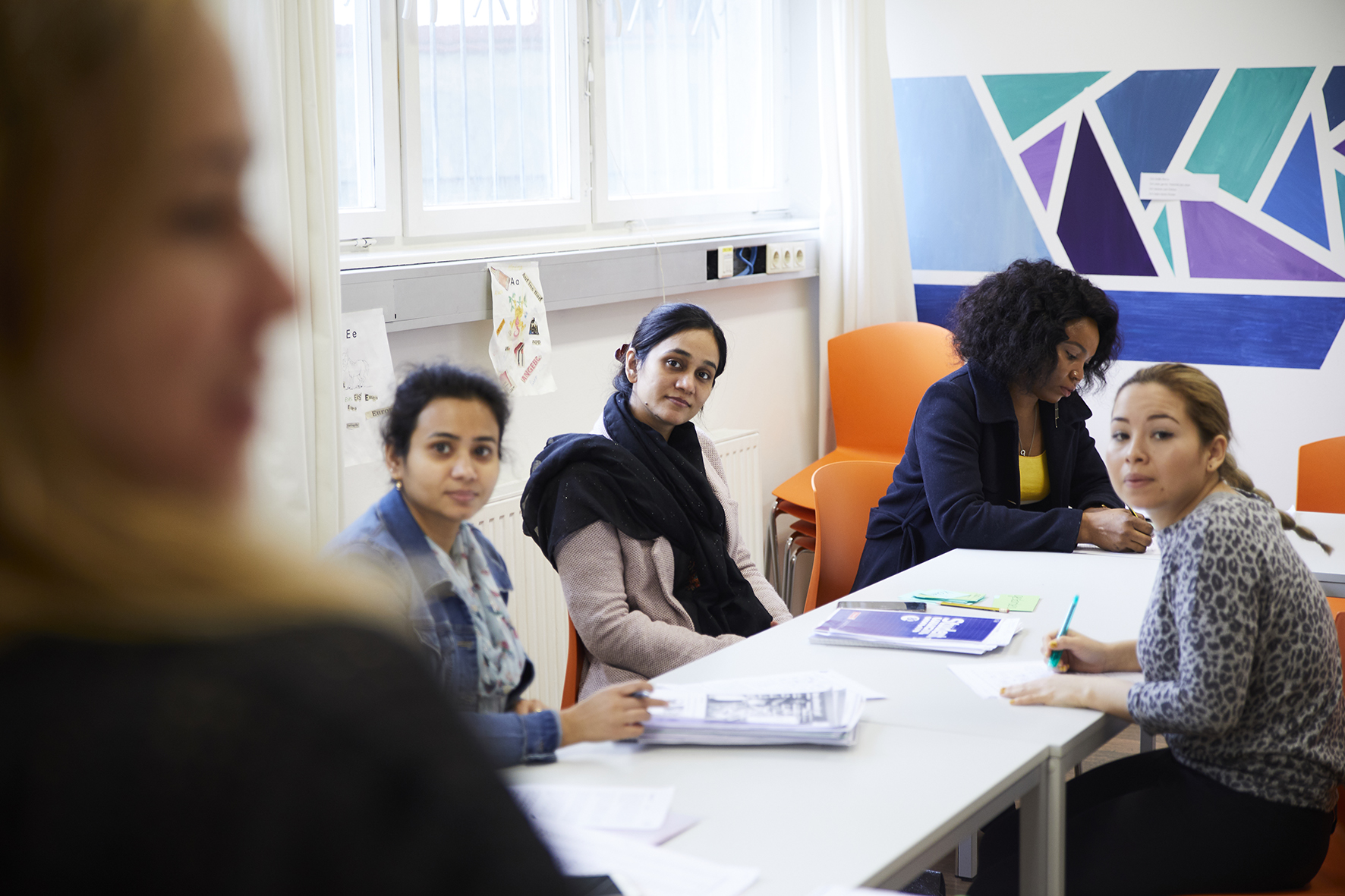
Problems and challenges
Traditionally, Austria is a country proudly welcoming and helping refugees. Nevertheless, workers and volunteers in the Ute Bock Refugee Project have seen a different tendency in last 20 years, with the growing visibility and dominance of right-wing populist parties in the public opinion. “As a refugee aid worker in Austria, one is confronted with many obstacles. This already starts with the public opinion towards vulnerable people seeking help.” For such challenges and obstacles, Ute Bock’s Association is grateful to all the supporters and fellow campaigners who share, and show, their commitment daily proving that the association is not alone in their work for humanity.
The failure and problems of the Austrian asylum system have an impact on the work of the association: the infinitely long procedures, the withheld access to the labour market, etc. are all reasons why people stay with the Ute Bock Refugee Project for a very long time, sometimes more than 10 years. “For example,” says Maren “we now have a large group of people who have to survive without any financial support (basic care). For example, Iraqis who have a negative asylum decision but cannot be deported because Iraq does not take back refugees who do not come voluntarily. Moreover, they even get penalties because they are still in the country. This kind of situation has no solution: where are they supposed to go?”
Get involved!
There are different ways to support the project, from volunteering to donations in kind, and even as a company! Check their website to discover all the possible options to help.
